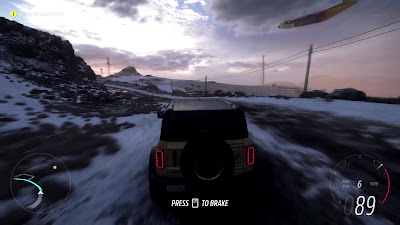How Assassin's Creed Shadows Compares with Other Japanese Action-RPGs?
It seems that a trend is emerging these days to create video games based on real and/or fictional Japanese environments, and the latest example is Assassin's Creed: Shadows. What captures your attention about games of Japanese origin, and where does Assassin's Creed: Shadows sit? While I feel like I am undoubtedly enjoying myself in this realm, the first thought I tell myself after dropping to Japan for a while is Sekiro: Shadows Die Twice, Nioh 2, and Ghost of Tsushima. All of these games portray a different tale and trademarked combat masterpieces. I hope that Shadows lives up to its expectations.
Discussing Sekiro, Ghost of Tsushima, and Nioh 2 about Assassin's Creed: Shadows is like comparing various forms of martial arts. Each has its own timing, degree of independence, and distinctive enjoyment.
Sekiro: Shadows Die Twice: The Unforgiving Japanese Metronome of Combat
Can you think of a game that features a Japanese setting with combat? Sekiro will surely come to mind. Software's title has one of the unmatched combat systems: an embrace of overwhelming ballet of strikes and evasions, counterattacks, and layered pressure. Mastering its game mechanics is one of the hallmarks of such titles.
Sekiro Combat Philosophy: It's the Posture System. Sekiro: Shadows Die Twice has eight different positions that simultaneously serve as postures and do not depend on draining health bars. Energy acts like a fuel tank, and as energy is used during strikes, blocking, and countering, it allows for a subsequent execution. A moment of uncertainty brings instant death. Every fight feels like you have an endless pool of health, but here it turns into a duel, as every fight simplifies to a duel. Each and every clash in this combat system gives the sensation of a duel rather than a brawl; every encounter is exquisite. The clash, the sound of your foe being repelled, and the smack and stagger together serve as solid strikes that guarantee frenetic, boundless intensity and overwhelming depth.
Comparison to Shadows: While both Sekiro and Assassin's Creed Shadows focus on parry-based counterattacks, Sekiro's approach is much less forgiving. Sekiro lacks character swapping or a "tank" option, unlike Yasuke. You either master a complex combat system or face a significant penalty by losing progress to the last idol. Shadows has more flexibility and, to be blunt, a greater chance of success even if parry timing is off, thanks to the dual protagonist system. Sekiro's fights with the bosses are unforgettable tests of skill with zero room for failure. Shadows is interesting, but does not have the same relentless focus.
Ghost of Tsushima - The Cinematic Samurai Fantasy
With its open-world structure, many people say that Ghost of Tsushima resembles Assassin's Creed the most, but it stands out in the area of cinematic samurai fantasy.
Ghost of Tsushima Combat Philosophy: The game's mechanics are self-contained, emphasizing the shifting stances as a counterplay to various enemy types. Describing the enjoyment from mid-combat stance switching, counters, and executing fluid and fierce combos does not adequately do it justice. Additionally, there's the "stand-off" mechanic, a duel to the death that sets the pace for the action that follows. Fighting in this way feels simultaneously dense yet fluid, focused on spectacle and artistry, while also exploring intricate systems. The game strikes a balance between ease and skill, allowing players to deploy their power with a moderate demand for strategy.
Comparison to Ghost of Tsushima: Just like Ghost of Tsushima, Shadows also makes you feel as if you were a mighty warrior who is deeply engaged in the story. The "Ghost" tools and "Ghost" Stances provided by the game to engage in combat with the tactical molasses of Shadows' dual protagonists give you very similar options. The commanding heavy and area control, Yasuke's attacks evoke iconic destruction recallable from Ghost imaginatively. Naoe's stealth, especially her sharp and precise finishers, would be more aligned with the dishonorable "Ghost" style cadences of combat executed by Jin Sakai. With Shadows, I think the advantage lies in its more intricate parry systems, especially with Yasuke, which is a touch more rewarding and challenging than many of Ghost's lenient parries. Ghost seems to have a lower enemy count, which is undoubtedly one of the better-explored weaknesses in Shadows.
Nioh 2 - An Action RPG Like No Other
Nioh 2 is quite an astonishing title. It is an action RPG set in Sengoku Japan, fused with an almost merciless slant that features a cutting-edge stride (Ki) system accompanied by nearly unending avenues of character customization.
Two Weaves of Nioh 2: Combat in Nioh 2 is advanced; it incorporates deep Ki Level management. Players can change stances between all weapons, each of which has multiple unique movesets. Stance transitions happen while recovering stamina through Ki Pulse. Additionally, Yokai powers, elemental buffs, and a massive loot system combine to increase the complexity of an already intricate system. The difficulty of Nioh 2 is infamous for the build strategy and optimization alongside counters for each enemy attack, demanding flawless execution.
Shadows Comparison: This is where the differences seem to be the most pronounced. Nioh 2 differs in that it invests in super hardcore playstyles, focusing mechanically on optimization and build crafting to an almost obsessive level. There are some RPG features, but they are less critical compared to the player's skill. Still, a character's numbers or gear rolls, character-centric strategy after skill. In [game 1], combat is somewhat forced by multitasking due to a myriad of systems that enhance the most minute details. In [game 2], the developers' focus is on streamlined yet satisfying systems that pair offense and defense. One is more martial arts manuals, while the other is choreographed fight scenes; if we lean towards one or the other in this comparison.








Comments
Post a Comment